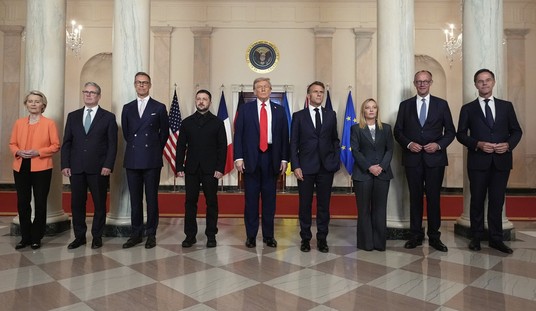Don’t pop the champagne corks just yet, as this may not be entirely good news for Donald Trump. A court filing on Monday from prosecutors informed the federal judge dealing with the Michael Cohen case that they had concluded their investigation into hush-money payments to Trump’s alleged mistresses and their nexus to the Trump Organization. Prosecutors wanted to keep their earlier filings redacted to protect the names involved, but with the probe over, Judge William Pauley said no way:
Federal prosecutors in New York have ended their investigation into the Trump Organization’s role in hush money payments made to women who alleged affairs with President Donald Trump and have been ordered by a judge to release additional information connected to their related probe of former Trump lawyer Michael Cohen, according to court documents filed Wednesday. …
CNN reported on Friday that the Manhattan US Attorney’s office had approached the end of its investigation of the Trump Organization and wasn’t poised to charge any executives involved in the company’s effort to reimburse Cohen. (Trump has denied the affair allegations.)
This appears to confirm the rumors that prosecutors had ended the probe without any charges being brought. Normally that would lead to a general sealing of the record to keep from casting aspersions on the unindicted, but the prosecution of Cohen makes that a difficult prospect. Judge Pauley wrote in his decision that the issues are already public, and that Americans deserve to know the full story:
After reviewing the Government’s status report and proposed redactions, this Court denies the Government’s request. In particular—and in contrast to the private nature of Cohen’s business transactions—the weighty public ramifications of the conduct described in the campaign finance portions warrant disclosure. See United States v. Amodeo, 71 F.3d 1044, 1051 (2d Cir. 1995) (explaining that “financial records of a wholly owned business, family affairs, illnesses, embarrassing conduct with no public ramifications, and similar matters will weigh more heavily against access than conduct affecting a substantial portion of the public”). Moreover, the involvement of most of the relevant third-party actors is now public knowledge, undercutting the need for continued secrecy. See United States v. Basciano, 2010 WL 1685810, at *4 (E.D.N.Y. Apr. 23, 2010) (“Shielding third parties from unwanted attention arising from an issue that is already public knowledge is not a sufficiently compelling reason to justify withholding judicial documents from public scrutiny.”). On balance, the “strong presumption of public access” to search warrants and search warrant materials under the common law far outweighs the weakened privacy interests at play here. See Cohen, 366 F. Supp. 3d at 621-22 (collecting cases).
The campaign finance violations discussed in the Materials are a matter of national importance. Now that the Government’s investigation into those violations has concluded, it is time that every American has an opportunity to scrutinize the Materials. Indeed, the common law right of access—a right so enshrined in our identity that it “predate[s] even the Constitution itself”—derives from the public’s right to “learn of, monitor, and respond to the actions of their representatives and representative institutions.” United States v. Erie Cty., 763 F.3d 235, 238-39 (2d Cir. 2014).
The legal exposure for Trump and his family business has apparently ended. The political exposure might be beginning, or at least amplifying after the release tomorrow, assuming the DoJ doesn’t appeal the ruling. From Pauley’s description, it certainly sounds juicy enough. Whatever it might be, it will be of great interest to House Democrats, especially if it’s information they have not already uncovered in their own probes.
Still, the end of the legal exposure is good enough for Trump and his re-election campaign, most likely. It seems doubtful that hush-money payments will do more damage in 2020 than they did in 2016, or since that period as more of them got exposed. Trump is almost incapable of embarrassment, and if prosecutors don’t see a cause for legal action on the basis of campaign-finance violations from such payments — a legal theory that probably died with the failure of the John Edwards prosecution — then it won’t get much support as a central impeachment issue, either.
One final thought on this development: it sure looks like Michael Cohen was bluffing on his way to federal prison, no?








Join the conversation as a VIP Member